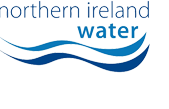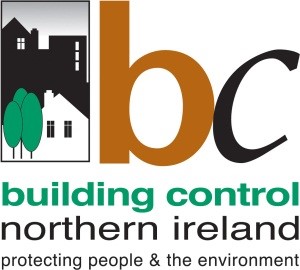Useful Links

The Department of Finance
The Department of Finance is one of 12 Northern Ireland Departments created in December 1999 as part of the Northern Ireland Executive by the Northern Ireland Act 1998 and the Departments (Northern Ireland) Order 1999.
The overall aim of the Department is “to help the Executive secure the most appropriate and effective use of resources and services for the benefit of the community”.
In pursuing this aim, the key objective of the Department is to deliver quality, cost effective and efficient public services and administration in the department’s areas of executive responsibility.

Planning
Responsibility for planning in Northern Ireland is shared between the 11 local councils and the Department for Infrastructure (the Department).
The 11 councils in Northern Ireland are responsible for:
- Local development planning – creating a plan which will set out a clear vision of how the council area should look in the future by deciding what type and scale of development should be encouraged and where it should be located;
- Development management – determining the vast majority of planning applications;
- Planning enforcement – investigating alleged breaches of planning control and determining what action should be taken.
If you have a query relating to a local planning application in your area or regarding the planning process, please contact the council’s planning office where experienced officers will be able to advise you. Contact details for the councils’ planning offices are available on the nidirect website, a link to which is provided below.

Roads
The Department for Infrastructure Roads is the sole Road Authority in Northern Ireland, responsible for public roads, footways, bridges, and street lights. It has four Divisional Offices.
See the divisional and section office boundary areas at the link below:

The Water Service
Northern Ireland Water is a Government Owned Company (GoCo), set up in April 2007 to provide the water and sewerage services in Northern Ireland.
In order to deliver this service we require a huge system of pipes, pumping stations, water and wastewater treatment works and reservoirs. There are 26,700 kilometres of watermains and 15,200 kilometres of sewers in Northern Ireland.

Rivers and Waterways
The Department of Agriculture and Rural Development (DARD) aims to promote sustainable economic growth and the development of the countryside. The Department assists the competitive development of the agri-food, fishing and forestry sectors of the Northern Ireland economy, having regard for the need of the consumers, the welfare of animals and the conservation and enhancement of the environment.

Northern Ireland Fire and Rescue Service
Northern Ireland Fire & Rescue Service (NIFRS) is committed to ‘Protecting Our Community’. We respond to fires, road traffic collisions and other specialist rescue incidents and provide community safety education and advice.

The Northern Ireland Environment Agency (NIEA)
Water pollution management in Northern Ireland has been divided into nine areas. Each of the nine areas is staffed by an Environmental Health (Rivers) Officer (EHRO) or Senior Water Quality Inspector (SWQI) and a number of Water Quality Inspectors (WQIs) who act as field agents on our behalf.
The Fisheries Conservancy Board (FCB) and the Loughs Agency (LA) also carry out pollution investigation and collect evidence on our behalf for use in Water Order prosecution cases.
Please follow the link below for information about water pollution management in Northern Ireland including the role of the operations team in relation to pollution prevention, pollution response, enforcement actions and how to report incidents of pollution.

Health & Safety Executive
HSENI (The Health and Safety Executive for Northern Ireland) is an executive Non-Departmental Public Body sponsored by the Department of Enterprise, Trade and Investment (DETI). HSENI is the lead body responsible for the promotion and enforcement of health and safety at work standards in Northern Ireland.

The Construction Industry Training Board NI
As the Industry Training Board and a partner in ConstructionSkills, the Sector Skills Council for the UK Construction industry, CITB NI, is funded by a statutory levy from registered in scope employers. The organisation provides a range of services to the industry which incorporates identifying training needs, encouraging and advising on training, provision of training grants and research and policy development. www.citbni.org.uk
Our role is to encourage the adequate training of those employed or intending to be employed in the construction industry and to improve the skills and productivity of the industry, to deliver a safe, professional and fully qualified workforce across the whole of the construction industry in Northern Ireland.
CITB NI’s role is also to make sure
- that employees and new entrants to the construction industry have the right training;
- that employers provide training for their workforce;
- that we understand the industry and can identify what its training needs are both now and in the future and;
- that the right qualifications, at the right level, are available to meet these needs.
As such, our image for the future of the construction industry, and for our organisation, (our vision) is:
A construction industry where skills and competence are at the core of every business, supported by a respected and valued CITB NI.


